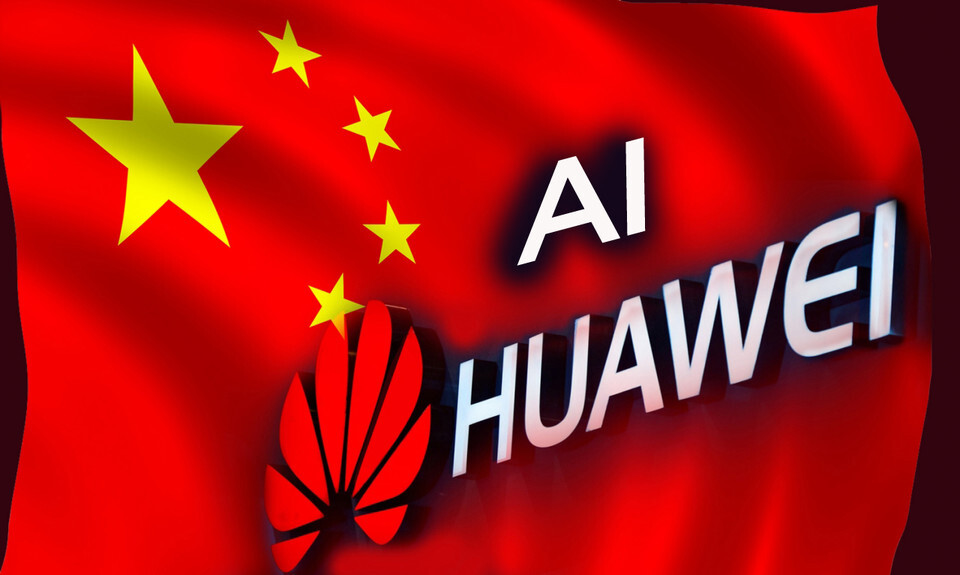
Beijing, China - Chinese technology giant Huawei is aggressively pushing forward in its quest to challenge Nvidia's dominance in the high-performance artificial intelligence (AI) chip market. The Wall Street Journal (WSJ) reported on Sunday, citing informed sources, that Huawei is in the early stages of developing its latest AI chip, the Ascend 910D, with internal expectations that it could outperform Nvidia's flagship H100.
According to the WSJ's sources, Huawei has already engaged with several Chinese technology firms to assess the technical viability of the Ascend 910D. The company anticipates receiving the initial samples of this highly anticipated chip as early as the end of May, marking a significant step in its ambition to become a leading player in the AI silicon arena.
This development follows Huawei's previous advancements in AI chip technology, including the Ascend 910B and 910C. Notably, Reuters reported earlier last week that Huawei has engineered the 910C by integrating two 910B processors into a single, more powerful package. Mass production and supply of the 910C to customers are reportedly slated to commence as early as next month. Huawei had already begun distributing samples of the 910C to technology companies late last year, actively taking orders, with some initial shipments already completed, according to Reuters.
The WSJ further revealed that Huawei has ambitious shipping targets for its existing AI chip portfolio. Citing sources, the company aims to ship over 800,000 units of its 910B and 910C chips this year to a diverse range of clients. These customers include major state-owned telecommunications companies in China and prominent private AI developers, such as ByteDance, the parent company of the globally popular video-sharing platform TikTok.
Huawei's determined foray into high-performance AI chips comes against a backdrop of increasing U.S. government restrictions on China's access to advanced semiconductor technology. Washington's efforts to curb China's technological rise have included stringent measures aimed at preventing Chinese companies from acquiring cutting-edge chips. Notably, exports of Nvidia's high-end H100 AI chip to China were prohibited even before its market debut in 2022.
In an attempt to navigate these restrictive U.S. regulations, Nvidia developed a modified, lower-performance version of its flagship chip, the H20, specifically for the Chinese market. However, this workaround proved temporary, as the U.S. Department of Commerce recently expanded its export controls to include the H20, further limiting China's access to Nvidia's advanced AI silicon.
The WSJ report highlights that the tightening U.S. restrictions are already having a ripple effect within the Chinese tech ecosystem. Following the Trump administration's move to limit exports of Nvidia's H20, several Chinese companies are reportedly in discussions to significantly increase their orders for Huawei's existing 910C chips, signaling a potential shift in market dynamics.
The Wall Street Journal's analysis underscores the significance of Huawei's consistent technological progress. The newspaper posits that Huawei's ability to develop and potentially mass-produce competitive AI chips demonstrates the inherent resilience of China's semiconductor industry. This resilience is particularly noteworthy given the concerted efforts by Washington to impede China's technological advancement, including measures aimed at blocking access to crucial semiconductor manufacturing equipment.
The development of the Ascend 910D and the increasing adoption of the 910B and 910C chips mark a critical juncture in the global AI landscape. Huawei's determined push to create viable alternatives to Nvidia's high-performance offerings could have significant implications for the future of AI development, particularly within China, and potentially reshape the competitive dynamics of the global semiconductor industry. As the anticipated May timeline for the first Ascend 910D samples approaches, the tech world will be closely watching Huawei's progress in this high-stakes endeavor.
[Copyright (c) Global Economic Times. All Rights Reserved.]






























